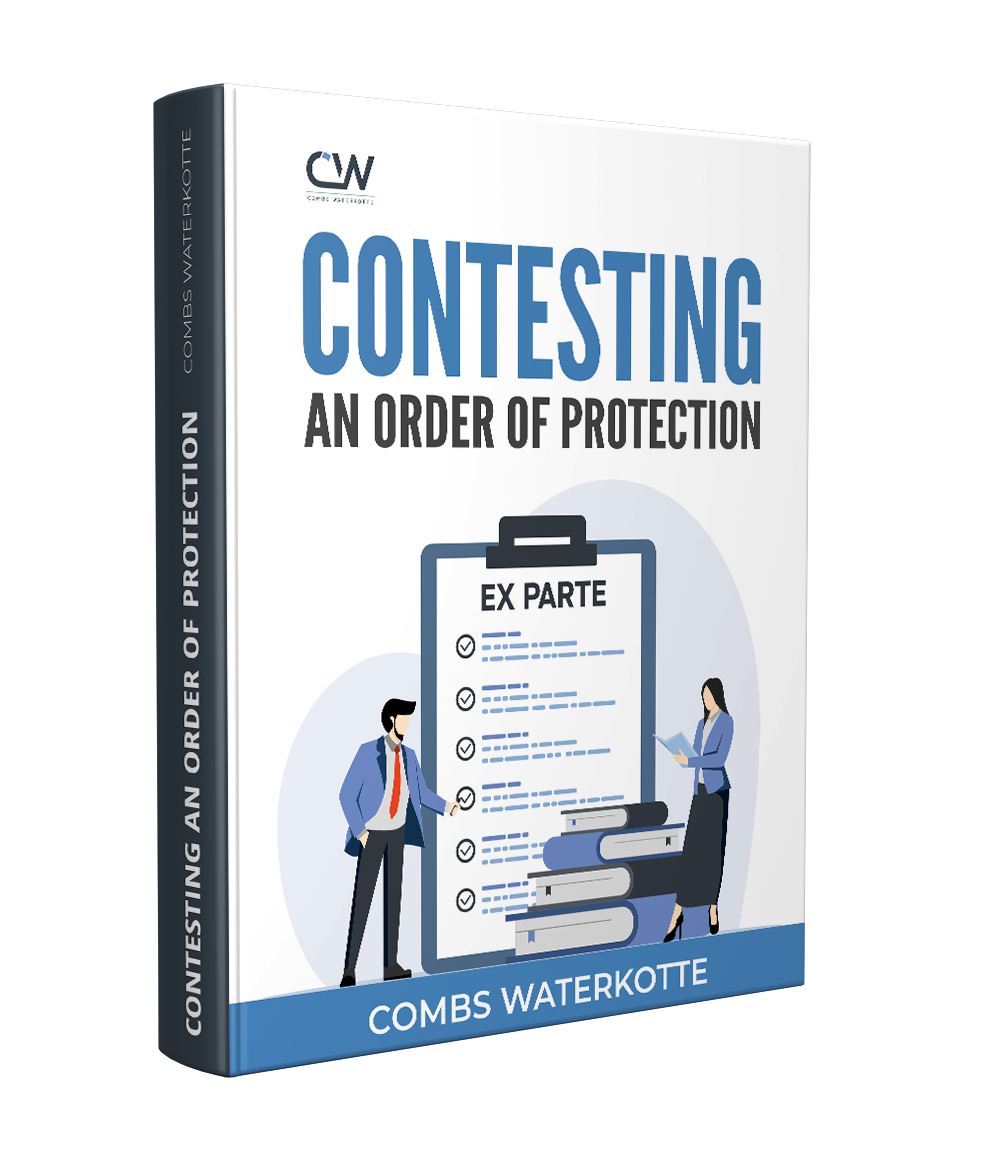Additional Links
- Criminal Lawyers With Payment Plans
- Missouri Revised Statutes
- Missouri Criminal Defense Resources
- Legal Books
- Defending Freedom Podcast
- Legal Videos
- Can Police Search My Phone?
- Top Reasons You Need a Criminal Defense Lawyer
- Probable Cause: Police Searches and the 4th Amendment
- Dos and Don’ts when Interacting with the Police

Why You Need a St. Louis Cyber Crimes Lawyer Immediately
- Law enforcement is already building a case against you.
- Digital evidence can be flawed, misinterpreted, or illegally obtained.
- Cyber crimes can be charged as federal offenses, leading to harsher penalties.
- A conviction can result in prison time, fines, and restrictions on internet use.

Your future is on the line. Call Combs Waterkotte's St. Louis cyber crimes lawyers at (314) 900-HELP for an immediate consultation.
What Is Considered a Cyber Crime in Missouri?
Cyber crimes in Missouri encompass a broad range of offenses involving computers, networks, and digital communications. These crimes are typically prosecuted under Missouri Revised Statutes (RSMo) Chapter 569 (related to computer-related offenses) and various federal laws.
Penalties vary based on the severity of the offense, with charges ranging from Class A misdemeanors to Class C felonies.
Common Cyber Crimes in St. Louis
Identity Theft (§570.223 RSMo)
- Using someone's personal information without consent for financial gain or fraud.
- Charge Level: Can be a Class A or Class B misdemeanor, Class A, Class B, or Class C felony, depending on the amount stolen.
Computer Tampering (§569.095 - §569.099 - §569.099 RSMo)
- Unauthorized access, modification, or destruction of computer data or systems.
- Charge Level: Ranges from a Class A misdemeanor to a Class C felony, depending on the extent of damage.
Online Fraud & Scams
- Phishing, credit card fraud, and online purchase scams.
- Charge Level: Typically charged under stealing and fraud statutes, which vary based on financial damages.
Hacking & Unauthorized Access
- Illegally accessing government or private networks.
- Charge Level: Can be charged under Missouri law or the federal Computer Fraud and Abuse Act (CFAA), with penalties based on intent and harm caused.
Child Pornography & Exploitation (§573.037 & §573.039 RSMo)
- Possessing, distributing, or producing explicit images of minors.
- Charge Level: Felony charges that often carry mandatory prison sentences, and vary based on the harm caused and age of the victim(s).
Cyberstalking & Harassment (§565.225 RSMo)
- Using electronic communications to threaten, harass, or intimidate someone.
- Charge Level: Class E felony, or a Class D felony if it's not the first offense.
Revenge Porn (§573.110 RSMo)
- Distributing private sexual images without consent.
- Charge Level: Class E felony, punishable by prison time and fines.
Wire Fraud & Business Email Compromise (BEC)
- Sending fraudulent emails impersonating a business or official entity.
- Charge Level: Often prosecuted as federal wire fraud, carrying severe penalties.
Ransomware & Malware Attacks
- Using malicious software to lock users out of their data until a ransom is paid.
- Charge Level: Prosecuted under computer tampering laws or federal statutes.
Illegal Online Gambling (§572 RSMo)
- Running or participating in unauthorized online betting operations.
- Charge Level: Can result in criminal penalties under Missouri gaming laws.
What Are the Penalties for Cyber Crimes in Missouri?
Cyber crime penalties in Missouri depend on the type of offense, the amount of financial damage, and whether the crime targeted individuals, businesses, or government entities.
Charges range from misdemeanors with fines and probation to felonies carrying years in prison. Some cyber crimes may also lead to federal charges, increasing potential penalties.
Misdemeanor Cyber Crimes (Less severe offenses, often first-time or low-impact crimes)
- Class A Misdemeanor (e.g., minor computer tampering, online harassment, cyberstalking with no threats of harm)
- Up to 1 year in jail
- Fines up to $2,000
Felony Cyber Crimes (More serious offenses with significant financial damage, harm to victims, or repeat offenses)
- Class E Felony (e.g., unauthorized computer access, first-time revenge porn offense)
- Up to 4 years in prison
- Fine amount varies; determined by the court
- Class D Felony (e.g., cyberstalking with threats, second-time revenge porn, wire fraud under $750, certain hacking offenses)
- Up to 7 years in prison
- Fines up to $5,000 or twice the financial gain (capped at $20,000)
- Class C Felony (e.g., identity theft, major online fraud, computer tampering that causes financial loss)
- Up to 10 years in prison
- Fines up to $5,000 or twice the financial gain (capped at $20,000)
- Class B Felony (e.g., large-scale hacking, cyber extortion, ransomware attacks, wire fraud over $750, child pornography distribution)
- 5 to 15 years in prison
- Fine determined by the court
- Class A Felony (e.g., child exploitation, cyber crimes involving violent threats or terrorism-related offenses)
- 10 years to life in prison
- Fine determined by the court
Cyber crime penalties can vary based on intent, financial damage, and prior convictions. If you're facing charges, call Combs Waterkotte at (314) 900-HELP or contact us online for immediate defense.
Frequently Asked Questions (FAQs) About Cyber Crime Cases in St. Louis
- Can you be arrested for a cyber crime without evidence of financial loss?
Yes. Many cyber crimes, such as hacking, unauthorized access, or cyber harassment, do not require financial loss for charges to be filed. Prosecutors can pursue a case based on intent, digital evidence, or harm to victims even if no money was stolen.
- Can cyber crimes be charged at the federal level?
Yes. Crimes involving interstate communications, financial fraud, or child exploitation can result in federal prosecution.
- How can a lawyer defend against cyber crime charges?
A lawyer can challenge digital evidence, prove mistaken identity, expose illegal searches, and argue lack of intent to commit a crime.
- Can I be charged with a cyber crime if I didn’t know I was breaking the law?
Yes. In many cases, lack of knowledge is not a defense to cyber crime charges. However, your attorney can argue that you lacked intent, were wrongfully accused, or that the prosecution cannot prove you knowingly committed a crime.
- Can cyber crime charges be expunged in Missouri?
It depends on the offense. Some misdemeanor cyber crimes may be eligible for expungement after a waiting period, but felony offenses like hacking, identity theft, or child exploitation typically cannot be removed from your record.
Have more questions? Speak with a St. Louis cyber crime defense lawyer now—call (314) 900-HELP or contact us online.






























